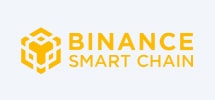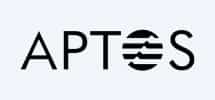Audit of smart contracts
FAQ
A smart contract audit is a process of reviewing and analyzing the code of a smart contract to identify potential vulnerabilities, security flaws, and other issues that could compromise its functionality or the security of the assets involved. Smart contracts are self-executing contracts with the terms of the agreement between buyer and seller being directly written into lines of code, so any mistake or bug in the code can lead to significant financial loss or other negative consequences.
During a smart contract audit, security experts review the smart contract's codebase line by line, looking for potential weaknesses or bugs that could be exploited by attackers. They analyze the contract's logic, functionality, and input/output data to ensure that it operates as intended, and to identify any potential security risks that could arise from its execution. Once the audit is complete, the findings are documented and reported back to the contract's developers, who can then make necessary changes to improve the contract's security and functionality.
The cost of a smart contract audit can vary widely depending on several factors, including the complexity of the contract's code, the depth and scope of the audit, and the experience and reputation of the audit firm or individual.
Some auditors charge a flat fee for their services, while others charge hourly rates. Generally, a basic audit of a simple smart contract may cost a few thousand dollars, while more complex contracts with advanced features or functionality may cost tens of thousands or even hundreds of thousands of dollars to audit.
It's important to note that while the cost of a smart contract audit may seem high, it is a critical investment in ensuring the security and integrity of the contract and the assets involved. Failing to conduct a thorough audit can leave the contract and its users vulnerable to costly and damaging security breaches or other issues.
Auditing a smart contract requires a methodical and thorough approach to ensure that all potential vulnerabilities and security risks are identified and addressed. Here are some general steps that can be taken when auditing a smart contract:
- Define the scope and objectives of the audit. Establish the scope of the audit, including the parts of the smart contract to be reviewed and the specific objectives of the audit.
- Review the smart contract's code. Conduct a line-by-line review of the code to identify any potential security vulnerabilities, errors, or inefficiencies. This includes analyzing the contract's functions, inputs, and outputs to ensure that they behave as expected.
- Verify the contract's logic and functionality. Verify that the smart contract's logic and functionality align with its intended purpose and that all conditions and outcomes are accounted for.
- Test the contract's performance. Conduct performance testing to ensure that the contract performs as expected under different scenarios, including high traffic volumes and varying network conditions.
- Conduct a security analysis. Conduct a thorough security analysis of the smart contract, including vulnerability assessments and penetration testing, to identify potential security risks and determine the level of risk exposure.
- Document and report findings. Document all findings and report them to the contract's developers, along with recommendations for improvements and remediation steps.
- Follow up. Follow up with the contract's developers to ensure that any identified issues are resolved and that the contract's security and functionality are improved.
The duration of a smart contract audit can vary depending on several factors, such as the complexity of the contract, the scope and depth of the audit, the experience of the auditor, and the availability of resources.
A simple smart contract audit can take anywhere from a few days to a couple of weeks, while a more complex smart contract audit can take several weeks or even months to complete. In some cases, additional testing and remediation may be required, which can extend the audit timeline.
The auditing process involves several stages, including an initial analysis of the contract's code, a review of the contract's functionality, and security assessments, among others. Each stage requires careful consideration, analysis, and documentation, which can contribute to the overall duration of the audit.
To ensure that the audit is conducted thoroughly and effectively, it's important to engage experienced and reputable auditors who can provide accurate timelines based on the specific requirements of the smart contract audit.
Smart contract audits are essential for several reasons, including:
- Ensuring the contract's functionality. Smart contract audits help ensure that the contract's code is free of errors and that its logic and functionality align with its intended purpose. This helps to avoid potential issues such as incorrect contract execution or unexpected behavior.
- Identifying security vulnerabilities. Smart contract audits can identify potential security vulnerabilities and other risks that could lead to financial loss or other negative consequences. By conducting a thorough security analysis, auditors can help ensure that the contract is secure and that users' assets are protected.
- Building trust. Auditing a smart contract demonstrates a commitment to transparency and accountability, which can help build trust with users and other stakeholders. This is especially important in decentralized systems where trust is paramount.
- Compliance with regulations. Depending on the jurisdiction, certain regulations may require smart contract audits to ensure compliance with specific legal requirements or standards.
- Improving code quality. Smart contract audits can also help identify opportunities to improve code quality and optimize contract performance. This can help improve the contract's functionality, efficiency, and overall performance.

















